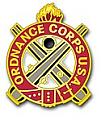“The Myth of the War Experience was kept alive and transmitted into the postwar world not by any sizeable group of the population, but by some Nazi youth and the SS (the elite Black Corps) and above all by those who had volunteered to fight in the Second World War. We must first concentrate upon these volunteers, or a group of people identical to those who had furthered the Myth of the War Experience in the first place, a century earlier, now attempted to come to its rescue. There was no rush to the colors in 1939; for one thing, all able-bodied men were immediately drafted. The volunteers arrived later with the Nazi’ conquest of Europe, and they came from all over Europe to fight in Hitler’s armies, though the term
volunteer needs qualification. These volunteers were not as single minded in their enthusiasm as the earlier volunteers had been, and their reason for joining up were more complex. They enlisted not in a national but in European crusade, and they fought against bolshevism for the most part rather than seeking than seeking personal and rational regeneration. For all that, commitment to their individual nation did play a certain role in their enlistment, as we shall see, but so did commitment to some type of fascist ideology: most of the volunteers had been sympathetic to National Socialism before they enlisted. Under these circumstances the Myth of the War Experience continued to make its influence elt among them.
From 1941 to 1944, altogether some 125,000 West Europeans and 200,000 East Europeans, Baltic peoples, and Russians volunteered in the Waffen SS—the military wing of the SS. They were grouped into various units, some of one nationality (the French Division Charlemagne), other of mixed nationality (the Division Viking, made up of Nordic nations). This was a European army, and however unreliable the reported figures of those who joined up, it was the biggest army of volunteers seen since the First World War. At first it had been small; by 1942 only some five thousand men had joined, but by 1943 the huge losses of the Waffen SS in Russia led to a more active policy of recruitment, and the number swelled. Thus, in 1943, 100,000 Ukrainians volunteered (of which a small percentage could be inducted), and even in France many joined in these last years of the war. Eventually volunteers came from thirty-seven nations. Hitler was always uneasy about this army of volunteers, since he never trusted members of former enemy nations. However, by 1943-1944 many of them had proven their fighting skills; indeed, it was in the last years of the war that these SS divisions distinguished themselves in the fierceness of their resistance to the Russian advance.
The reasons why men volunteered was often bound up with the circumstances of their nations and their previous political and ideological affiliations. Collaborationist governments encouraged enlistments, while some in the rather large Baltic contingents (some eighty-thousand Letts, for example) fought for their state’s independence from the Soviets armies which had conquered them. There was also a feeling among many volunteers that fighting for Hitler would assure their nations an honorable place in the new order of Europe (Hmmm, I already heard very similar arguments, much later during the 90’s. Ed.). A high proportion of volunteers had been members of prewar Fascist parties or of collaboration parties when their nation was occupied. Thus 62 percent of the French volunteers of 1943 belonged to one or another of the Fascist political parties, and a considerable number of Dutch volunteers, perhaps as high as 40 percent of the total number, belonged to the NSB (National Socialistische Beweging). The strength of political commitments made before volunteering varied from nation to nation. It was relatively high in Holland and Belgium, and quite low in the Baltic states, where no significant Fascist parties existed before the war. Many of these volunteers were as highly politicized as those who had fought on the Loyalist side in Spain, in contrast with earlier volunteers—surely a symptom of the increase of politicization during the interwar years.
Another sizeable group of volunteers had been members of conquered and now disbanded national armies. Political motives for enlistment were often indistinguishable from personal ones. The belief in national regeneration as a means of personal regeneration played its role, but tensions within the immediate family sometimes led to enlistment. Thus N.K.C.A. Int’Veld found that some Dutch volunteers joining the SS was an expression of revolt against a pro-English father. That the motivation of the SS volunteers were much more diverse that those of earlier volunteers in war was only to be expected given their lack of cohesion and the complex situations in which they found themselves.
The usual motivations also played a role: love of adventure, status, glory, and gain. The last was probably not an important factor—more could be earned by staying at home and joining the police of militia—but toward the end of the war the rapidly worsening food shortages also drove men to volunteer. At least they would have enough food and shelter in the Waffen SS. Such material inducement had played hardly any role among the volunteers of 1914 or those in Spain, but in the midst of total war they were bound to have an effect. Collaborators had a concrete reason for volunteering in the last phase of the war, for service at the front seemed an escape from the personal danger they faced in their respective nations as Germany went down to almost certain defeat. Moreover, during the last years of the war there was much forced recruiting from occupied nations, and it becomes difficult to distinguish the volunteers from those whose enlistment was all but compulsory.
The motivations for enlistment were important for the continuation of the myth. A pool of articulate and educated volunteers existed once again who, having joined, were ready to keep the myth alive. These were volunteers from Western countries—especially from France—for whom volunteering was an act of personal and national regeneration.”











Bookmarks